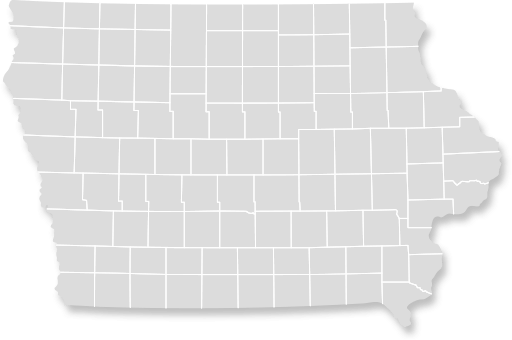Could an Iowa Property Owner Pay If Guilty of Providing Negligent Security?
Iowa property owners have a legal responsibility to provide adequate security to visitors, guests, customers, and others who are lawfully on their property. Adequate security means different things to different property owners. For example, the security needed in Des Moines hotel is different from the security needed on a rural farm; yet, both the hotel and the farm must have reasonable security measures in place to prevent attacks. If they do not have adequate security and you are injured in an attack on that property, then you may be able to recover damages.
You are going to have to take action in order to recover damages from an Iowa property owner after an attack. However, you don’t have to take that action alone. For more than five decades, our experienced personal injury lawyers have been helping people get the fair and just recoveries that they deserve. Please download our FREE report, Negligent Security: What You Need to Know About It, and please browse this site for more detailed information about negligent security claims in Iowa.
Our Iowa offices serve the entire state and are located in Cedar Rapids, Des Moines, and Davenport. Call Hupy and Abraham today at 1-800-800-5678 for a free consultation to discuss your case.
Negligent Security Incidents Can Occur on Any Type of Property
If you have been attacked on property you do not own then it is important to consider a negligent security action. Some locations where negligent security could occur include:
- Hotels. Hotels have a duty to provide reasonable security in common areas and to provide adequate locks on guest rooms to prevent dangerous attacks.
- Colleges. Students, staff, and authorized visitors should be provided with reasonable security on Iowa college and university campuses. This may include limited access to dorms, a security force, and other measures.
- Schools. Iowa schools have a duty to keep students and staff safe. They may develop a school safety plan and security procedures to help prevent attacks on school grounds.
- Stores. The amount of security that is reasonable depends on what type of store it is and where it is located. Specific security measures will vary, but may include security cameras, good lighting, and training staff about what to do in an emergency.
- Banks. While banks typically have security measures in place, it is important to consider whether those security measures were reasonable given the likelihood of a robbery in these locations.
- Parking lots. Good lighting and restricted access may be reasonable security precautions to prevent parking lot attacks. However, each situation is unique; location and circumstances will determine whether the parking lot owner has reasonable security measures in place.
- Bars and nightclubs. Fights, attacks, and other problems may be predictable at bars and nightclubs. Accordingly, reasonable security measures, such as bouncers, should be in place.
- Apartment buildings. Property owners are responsible for providing reasonable security in the common areas of apartment buildings including lobbies, parking lots, hallways, stairwells, outside grounds, and other locations.
Attacks may occur in these locations because of a lack of reasonable…
- Staffing. Staff—including but not limited to security staff—should be present in sufficient numbers to prevent an attack.
- Training for staff. Security staff should be reasonably trained so that they can do their jobs and other staff should know what to do in an emergency situation.
- Lighting. Adequate lighting can help discourage an attack.
- Fencing, locks, or other barriers to entry. These types of barriers can help keep attackers off the property.
The failure to provide reasonable security may result in an attack and serious injury.
Negligent Security Incidents Can Result in Serious Injuries
Some of the significant injuries that can result from the lack of adequate security include:
- Brain and head injuries. A skull fracture or traumatic brain injury can change your life forever. The specific injuries you suffer depend on the part of the brain that was hurt and the severity of the injury.
- Spinal cord injuries. Complete spinal cord injuries result in permanent paralysis. Incomplete spinal cord injuries may result in other types of serious injuries such as loss of sensation or movement control.
- Broken bones. A broken bone requires immediate medical attention and could impact your quality of life.
- Sexual assault injuries. Sexual assault injuries are traumatizing and painful. Both your physical and emotional injuries should be considered in your recovery.
- Gunshot wounds. Gunshot wounds require immediate medical attention and may significantly impact your future.
- PTSD. Post-traumatic stress disorder or PTSD may occur after a negligent security incident and may occur with physical injuries.
- Death. If a property owner is negligent in providing reasonable security, then the result could be fatal for the person who is attacked or injured.
If you have suffered any of these injuries, or your loved one has died, then it is important to know what to do next.
Take Action to Protect Your Recovery
Even if the property owner clearly provided negligent security, you will need to take action to protect your recovery. Taking action means pursuing settlement negotiations or filing a lawsuit. However, before you take action it is important to know how a case works and some tips for protecting your recovery, such as:
- Why to pursue a civil case or insurance settlement if criminal charges are pending against your attacker. A criminal case may result in jail time or a fine for the person who attacked you, but it won’t result in a financial recovery for you. A civil negligent security case, however, can result in your financial recovery.
- How property insurance applies and how to deal with insurance adjusters. The property owner’s insurance policy may or may not apply to your case. If you are dealing with insurance adjusters, it is important to remember that their goal is to minimize your recovery and it is important to be cautious when talking to them.
- How to report the attack to the police. If you are able to call 911 at the time of the attack then you should do so. Otherwise, you should contact the police as soon as possible to report the incident.
- How to collect evidence. Photographs, eyewitness testimony, medical records and other evidence will be important to your recovery. Accordingly, it is important to collect the evidence that you need and safeguard it for your case.
- What you should not do after an attack. Certain mistakes, such as saying too much to the property owner or giving the property owner a chance to fix any security issues, can limit your ability to recover damages.
- How long you have to file a lawsuit—and what happen if you don’t do it in time. The Iowa statute of limitations gives you two years to file a negligent security lawsuit in most cases. If you miss the deadline, you will likely lose your right to recover damages unless your case fits one of the rare exceptions to the statute of limitations.
- If you have standing to file a lawsuit. If you’ve been hurt or if you are the parent or guardian of someone who has been hurt, then you may be able to bring a lawsuit for damages.
- What expert witnesses may be important to your claim. Security experts, doctors, and other witnesses may help establish liability, the severity of your injury, and the amount of damages you should recover.
- How settlements work. Fair settlements require skilled negotiation and evidence. Once a settlement is reached, it is binding and you will not be able to recover additional damages in the future.
- How to start a civil personal injury lawsuit. A negligent security case officially begins when you file a complaint in an Iowa state court that meets all of the court requirements.
- Why you need a lawyer. A negligent security attorney can help you protect all of your rights and your fair recovery of damages.
If you follow all the legal requirements precisely, you can put yourself in the best possible position to get the financial compensation that you deserve.
What a Fair Recovery Includes
A fair recovery should include compensation for past, current, and future damages related to the negligent security incident. Among the losses that can be compensated are…
- Health care costs. All of your medical costs—including surgeries, hospitalizations, medications, assistive medical devices, doctors’ visits, and rehabilitation therapies—should be included.
- Lost income. Any money or other benefits that you could not earn because of your injury should be included.
- Pain and suffering. The value of your emotional suffering and physical pain should be included.
- Other expenses. Any other out-of-pocket costs that you incur as a result of your injury should be included.
The specific amount that you should recover depends on your specific injuries, the quality of the available evidence, and how well you, or your lawyer, advocate for your full recovery. To learn more about protecting your rights and recovery, please call us today at 1-800-800-5678 or start an online chat with us now. We would be pleased to set up a free, confidential, no-obligation consultation with you.






